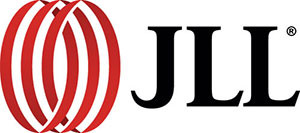By Brielle Scott
“I don’t come to this with 30 years of experience. There were people on my flight here that have forgotten more about negotiation than I’ve learned,” joked Ryan Smith, a senior associate for Trammell Crow Company, in a session this week at CRE.Converge.
Smith, who works on TCC’s life science development team in Atlanta, shared some key negotiating lessons learned through Science Square, a project he’s worked on for the past three years. The innovation district is a partnership between Trammell Crow Company and Georgia Tech that aims to attract health care, life sciences, biotech, and medical device innovation to the area.
Among the key themes Smith identified were specificity, creativity and partnership.
Specificity
“Going back to 2020, when we were negotiating this, the premier life sciences market [Boston] had 20 million square feet of life science space and less than 1% vacancy,” Smith said.
Today, that same market has 47 million square feet of space, rents that have declined roughly 30%, and a vacancy rate of 30%.
“The environment we were initially negotiating in and the environment that we’re in today are completely different,” Smith pointed out. When his team was negotiating the master development agreement, Smith said getting specific with benchmarking was something they did right.
“A lot of times you may have a timing requirement in a multi-phased development, and you might be able to extend that requirement based on some sort of overarching economic impact,” said Smith. A recession, for example. “What we benchmarked to was more specific life science vacancy and availability of capital that was clearly identified in our master development agreement.”
Two years later, Smith and his team found themselves in a much softer market. “Our partners at the university all understood that we would need more time, and everyone being on the same page was hugely beneficial. Codifying it so specifically in the document was a huge positive factor,” he added.
Creativity
Trammell Crow was about two years into its negotiation with a large tenant, which was looking to relocate its corporate R&D headquarters. “We’re past the LOI [letter of intent]. We’re about 75% of the way through the lease,” said Smith, setting the scene. The tenant’s general counsel then contacted the Trammell Crow team to say the company needed to get past the election cycle and really understand what was happening with tariffs before they could commit to moving forward.
“At that point, we had an opportunity to either go pencils down or try something different. We knew that their team needed a 2,000-square-foot landing place where they could recruit, interview and grow their relationship with Georgia Tech,” said Smith. “So instead of… saying, ‘Come back when you’re ready to commit,’ we negotiated the entire lease on that 2,000-square-foot space. And then we put incentives in that lease to expand early, and they did.”
“I think there could be an argument for taking a different approach, but we were not in a position where we had a ton of leverage,” based on the life sciences market at that time, Smith explained.
Partnership
Smith also emphasized the importance of forming partnerships with potential tenants looking to relocate.
“A lot of the groups that we were working with were led by scientists – folks who were focused on the actual use and capabilities of the space,” he said. “What we ended up doing was making sure that our messaging was not driven by the lobby and the amenities, but that our messaging was driven by the specific improvements to the building that were different from a typical office building.
“Our tours would start in the lobby, but we would go instantly to the back of the house. We’d go to the chemical storage space, we’d go to the loading dock, purposely use the service elevators rather than the passenger cars in the lobby and go to the mechanical penthouse… Educating our tenants on the value of the building and the risk that we were taking off the table for them was key.”
Smith’s perspective offered a reminder that negotiation isn’t just about leverage – it’s about clarity, adaptability and collaboration. In today’s dynamic real estate market, those skills may be just as valuable as decades of experience.

This post is brought to you by JLL, the social media and conference blog sponsor of NAIOP’s CRE.Converge 2025. Learn more about JLL at www.us.jll.com or www.jll.ca.








